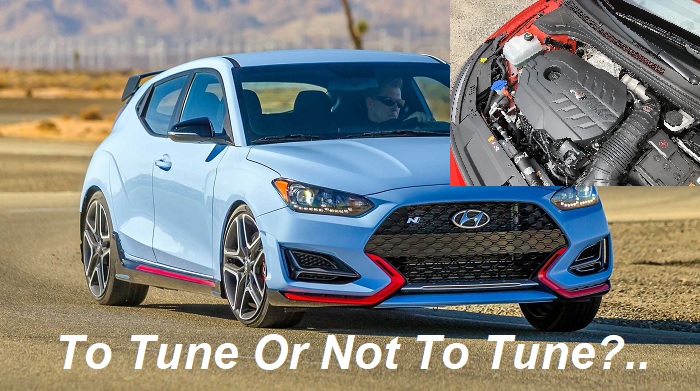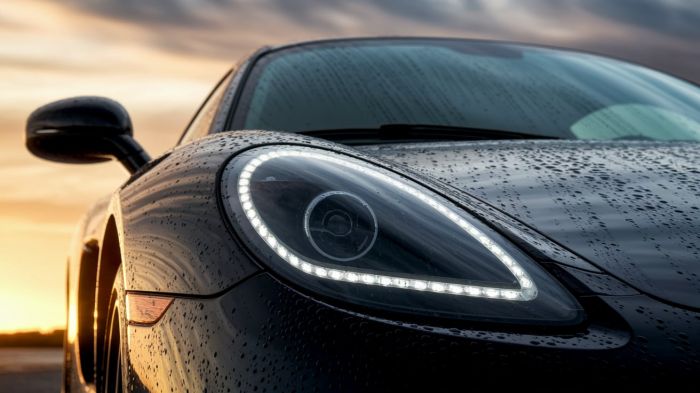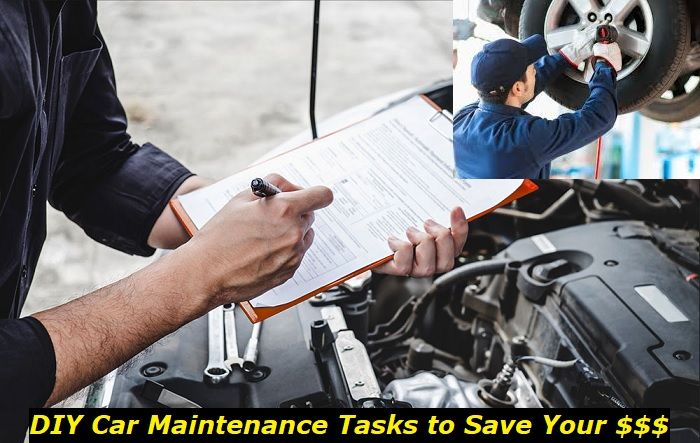Hyundai Veloster is one of the most popular coupe cars on the market now. The US buyers really love these cars and are ready to pay some money for them. The Veloster has always been seen as a car that differs much from an average vehicle and offers much more individuality and emotions when you drive it.
But Hyundai is known as a practical company, so sometimes their vehicles aren't that good in terms of emotions you get when driving. For example, the most affordable version of the Veloster will have a tiny 1.6-liter engine with GDI technology which is not bad if you just drive your kids to school. But it's not the best engine in the world for this type of body - sporty and active.

Here is what we'll be talking about today:
- What turbocharged versions of the Veloster can you buy now?
- Can you tune your Veloster to give more torque and horsepower?
- The danger of tuning the Veloster engines.
- How can you make your Hyundai Veloster more powerful?
Let's get started!
Hyundai Veloster versions with turbocharged engines
Well, the first thing you should know is that buying 2.0 and 2.0 Premium trims of Hyundai Veloster doesn't make much sense for you if you want a powerful car. These engines come with no turbochargers and they are not very powerful. 2-liter 4-cylinder engines give 147 hp of power which is not marvelous at all. Tuning them will not help much.
All the other trims offer more interesting engines. All trims that have "Turbo" in their names offer a 1.6-liter turbocharged engine with 201 horsepower which is much better. If you want to spend more money and get even more power, go for the N trim giving you 275 horsepower and 260 lb-ft torque.
Here are some important things you should consider:
- all engines are 4-cylinder and they have quite limited displacement - 1.6 liters or 2 liters only;
- turbochargers are very efficient and tuning them to get even more power doesn't make any sense;
- also, replacing turbochargers will not be a good option - Hyundai has taken basically the maximum out of these engine blocks;
- the engines are designed to work at high RPM and they show their best specs at 6000 RPM, though the maximum torque is available very early - approximately at 1500 RPM;
- these engines are designed for street use, so they are made with consideration of fuel consumption and longevity;
- these engines aren't tuned for sports, and you should think twice before you start tuning them for sports.
The Hyundai Veloster turbocharged engines are pretty good and we wouldn't spend our time and money changing something in them. You can buy a Veloster with a 1.6-liter turbocharged engine starting at approximately $25,000 which is not that expensive. But if you want more power, instead of tuning your little 1.6-liter unit, better go for the Veloster N with a 2-liter turbocharged engine.
You can buy the Veloster N for under $35,000 and it's not that bad, too. The N trim gives you more than just power. By the way, the Veloster N is the most popular Veloster trim in the US. People want more engine displacement and more power.
Tuning your Veloster turbo. Possible?
We've already told you that replacing a turbocharger and trying to go for Stage 2 and Stage 3 tuning is not a very good idea. Hyundai engineers have done their job really well and offered a lot of horsepower in relatively small engines. If you try to charge them even more by creating higher pressure of air in the engine, they will just give up and will need an expensive repair very soon.
We don't recommend experimenting with the exhaust and intake manifolds, too. Again, the engineers did everything right and you aren't likely to make things better in a local tuning shop.
Stage 1 tuning that changes only ECU settings is still possible. Here's what you can get:
- More power. Special tuning of the ECU works with the manufacturer's limitations on power. Hyundai may have limited power of your engine for the sake of lower taxes or whatever.
- Better torque. In some tuning programs, they will change the way your turbocharger works and will allow you to enjoy the highest torque on even lower RPM level. That's pretty good.
- Higher RPM. When making a car, manufacturers will limit the RPM so that you couldn't kill your engine. But the limitation may be changed to allow you to go at higher speeds on highways.
- Better acceleration. Also, all these changes will influence the 0-60 acceleration. Your car will probably become faster if the tuning company makes everything professionally and correctly.
- More sport in your Veloster. Tuning is usually aimed at adding some sport to your vehicle. Of course, this will have its side effects on some important factors and we'll tell you about them a little later.
OK, so you will get a lot of perks. Unfortunately, no one can tell you for sure how much power you can gain. There are hundreds of tuning types and approaches, so every approach will result in a certain power gain. But usually, you can count on 10-15% power growth and around 10% of torque improvement.
Unfortunately, these improvements don't always really change the way you drive your vehicle. And we understand that you will be disappointed if you don't feel this power gain. Let us explain to you why.
Why is Stage 1 tuning also bad for a Veloster turbo engine?
Some professional mechanics are opposing much to any tuning of the ECU. Their reasons are quite bright and we want to outline the most interesting of them. Maybe, these reasons will reassure you and you will not spend your money for tuning the turbocharged engines in your Veloster.
So, here are some of them:
- You will not change anything in your transmission, and it will still be tuned for the original power of your engine.
- Your engine displacement is important, too. Small engines will not be working as if they are 5-liter units, they will not gain more power and torque for your fun.
- These engines are working at the top of their abilities. Tuning them for getting even more power will destroy them pretty fast and will make you spend money on the repair.
- After tuning the ECU, you will most likely get problems with fuel consumption. The self-made tuning programs aren't as well-tested and checked as the manufacturer's programs. They may have a lot of problems.
- Your transmission longevity will deteriorate. The problem is that the transmission is set to withstand a certain amount of torque. When you change the torque, you will get a lot of problems.
- Finally, additional 20 horsepower and 15 lb-ft of torque will not change much the way you drive. This is not the gain that you want to pay your money for.
As you see, professional mechanics have quite a lot of reasons why you should avoid turning your Veloster turbo. And we agree with most of the statements. Of course, it's still up to you to decide whether the 20-horsepower gain is worth your money and time.
What's the longevity of Hyundai Veloster turbo engines?
The question of longevity is extremely important. When you buy a car, you want to know how many miles it can approximately go. With the Veloster 1.6 turbo, it's not that good. These cars are said to be able to go for about 150 000 miles. Then, you will start having problems with a broken catalytic converter, bad piston rings, valve sealers, valves, timing system, and, of course, the turbocharger.
2.0-liter turbo engines are a little better. If you manage to maintain your car like it should be maintained, you will drive your 2-liter turbo Veloster for about 200 000 miles. But then it's economically incorrect to own this vehicle.
Here are some tips on how to improve the longevity of your Veloster turbo:
- provide oil changes every 7-8 thousand miles;
- use the recommended (original) oil only for your engine;
- avoid changes of the ECU tuning for power gain;
- don't drive your vehicle at 4000-6000 RPM for a long time;
- use premium gasoline only;
- be careful with any engine errors on your dash.
These are the simple tips on how to make your Veloster live longer. But still, driving these vehicles for more than 200 000 miles is a big challenge for owners.
Final words
We all know that Hyundai Veloster is not a bad car at all. It looks pretty good, it's fun to drive (if you have a turbo engine under the hood). It's also not that expensive. In terms of performance, the most expensive Veloster trim (called N) is pretty much the same as Honda Civic R.
If you want to pay for ECU tuning for your Hyundai Veloster, you should think twice. The power gain will not be as big as you want, but the side effects for your engine may be very unpleasant.
About the authors
The CarAraC research team is composed of seasoned auto mechanics and automotive industry professionals, including individuals with advanced degrees and certifications in their field. Our team members boast prestigious credentials, reflecting their extensive knowledge and skills. These qualifications include: IMI: Institute of the Motor Industry, ASE-Certified Master Automobile Technicians; Coventry University, Graduate of MA in Automotive Journalism; Politecnico di Torino, Italy, MS Automotive Engineering; Ss. Cyril and Methodius University in Skopje, Mechanical University in Skopje; TOC Automotive College; DHA Suffa University, Department of Mechanical Engineering






Add comment